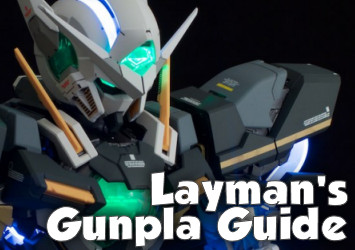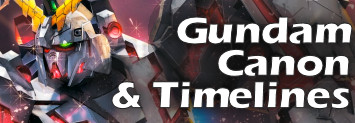
Synopsis:
The Kingdom of Pars stands above all other nations in its region, remaining unmatched in its military might for years under the command of its warrior-king, Andragoras III. However, a rival nation, Lusitiania, has designs on conquering Pars. The young prince, Arslan, is sheltered and gentle, and unprepared for his first battle with the Lusitianian army. During the battle, the Parsian army is betrayed by the general Kharlan, who helps lure them into a trap. Andragoras is forced to flee, and his forces lose heart, falling quick victim. The Lusitianian forces, guided by a man named Silver Mask, take advantage of this retreat to corner the king, then they attack the royal capital, Ecbatana. Arslan goes into hiding with the warrior Daryun, and they seek the asisstance of the retired tactician Narsus and his servant Elam. However, Silver Mask and Kharlan are looking for Arslan even as they lay seige to the capital. Can Arslan and the kingdom of Pars survive this sudden turn of fortune?
Comments (May Contain Spoilers):
Heroic Legend of Arslan is an interesting creature. Originally a series of (still ongoing) novels by famed Japanese author Yoshiki Tanaka (creator of the original books the anime Legend of the Galactic Heroes, Ryoko's Case File, and, unfortunately, Tytania were based on), this is a story that's already been adapted into anime. Back in the early nineties, there was a six-part OVA done by Animate Film and J.C. Staff. I've never seen that adaptation before, and maybe I'll track it down to watch and review for my Otaku Evolution series, but apparently it's well-regarded by those who've watched it. And that's just the beginning of how interesting this title is.
This television series, being produced by Liden Films and Sanzigen, is actually not a sequel to the 90s anime, or even strictly a straight adaptation of the novels. No, even more interestingly, it's based on a manga series based on the novels, but illustrated by Fullmetal Alchemist creator Hiromu Arakawa. So we have a TV anime based on a manga adaptation of novels that had previously already been adapted into anime. It's almost enough to make your eyes go cross. But it was this interesting blend of Tanaka's writing shone through Arakawa's lens that drew me to this TV show. I mean, Legend of the Galactic Heroes and Fullmetal Alchemist (both shows) are two of my favorite anime of all time!
But I've been burned by Tanaka-based anime before. As I mentioned parenthetically, the man is responsible for Tytania, whose anime adaptation was the disaster that was, again unfortunately, the last work of famed director Noboru Ishiguro. It still eats me up inside that Ishiguro went out on a stinker like Tytania, a poor man's LoGH that went nowhere and had nothing to say.
Enough preamble, though. I decided to watch this series regardless, and my overall reaction thus far has been...
Eh, it's pretty good, I guess.
The show is kind of a historical fantasy, roughly recasting the history of Persia with middle fantasy elements, and blending European and Middle Eastern aesthetics in the dress, architecture, and attitudes of the characters. It explores topics such as slavery, religious zealotry, warrior culture, and royalty's responsibility to its citizens, and doesn't shy away from casting all "sides" as being both equally wicked at times, even though we're clearly intended to see Arslan himself as sympathetic. With both a compelling narrative and examination of these elements, it begins to take shape over these six episodes in much the way LoGH did in its initial cluster of episodes (roughly until the civil wars).
Prince Arslan himself is thus far still mostly a blank slate, which makes some of the early episodes weak, because he's kind of this put-upon gentle soul with very little real personality quirks. He's a little too quiet, too sheltered, and even though he's far from a coward, he still doesn't seem to brim with spirit. However, we do see some flashes of intelligence in his diplomacy with Narsus, and his desire to learn practical things to be of service to others. I can't imagine he'll be as brilliant or crafty as a Yang Wenli or brimming with ardor and guts like Edward Elric, but we'll give him some more time to shape up into the king to be. I'm interested in how he is so distant from his parents, the king and queen. Usually one or the other parent will dote if one of them is distant, but the king finds him weak and the queen will have nothing to do with him. I guess they were expecting their son to be more steely eyed and vigorous, but we'll see how these events transform him.
The most intriguing figures in this story are Arslan's supporting players. Stalwart Daryun, whose father serves as sort of a Balgus (from Escaflowne) role and is protecting the prince not just out of duty to Arslan himself, but to his honored father. Progressive Narsus, whose shrewdness is ignored by the throne because of his idealism, wanting to free the slaves. And perhaps most importantly, the character we're introduced in just the last couple of episodes in this group, the wandering minstral, Gieve, who fancies himself a lady's man, but is just as adept with a sword and bow. He's probably my favorite character thus far, especially after walking away from a fight with Silver Mask and easily dispatching several of his men.
An element I enjoy about this show is its even handedness in depicting Pars and Lusitiania. Pars is, for all intents and purposes, built on brutal military might and slave labor, and while outwardly prosperous, that prosperity is entirely reliant on maintaining a sense of martial superiority, to where the king himself is known for his invincibility. But you can hardly congratulate them for putting the king on the frontline, because both the king and queen are rather callous and care little for child rearing or society's social progress. The Lusitianians, on the other hand, push a line about all men being equal in the eyes of their god, but they have a mouth-foaming zealotry to go with their "free the slaves" mentality. This show displays a clash between two pretty savage cultures, but they aren't without a nobility, or shades of good ideas. You don't come away particularly caring if either side wins, in the long run, but since Arslan is the prince of Pars, you hope he becomes a better king than his father, at least.
The production values are nothing stunning. Some of the CG shots look ridiculous, the music isn't anything special, and the character designs are your usual stock Arakawa-based designs. You can see a lot of FMA characters in the faces of the characters here. It's still a fairly distinct, if not overly eleborate style, but its nothing to celebrate or condemn. The voice acting is probably the strongest point of the production, with some relative newcomers mixed in with veterans, balancing the grizzled, hardened soldiers with the more freshfaced youths of Pars. I am curious as to what Funimation's cast will look (or rather, sound) like.
Despite some early shakiness (the first episode seems a pretty standard introductory episode that feels mostly detached from the rest of the narrative), the series finds itself hitting the right buttons around the introduction of Gieve, and the seige of the royal capital. Even LoGH took a little bit to get into the groove, so I say, give it a shot.
Heroic Legend of Arslan can be seen streaming on Funimation.com.
Overall Score:
3.5 out of 5







